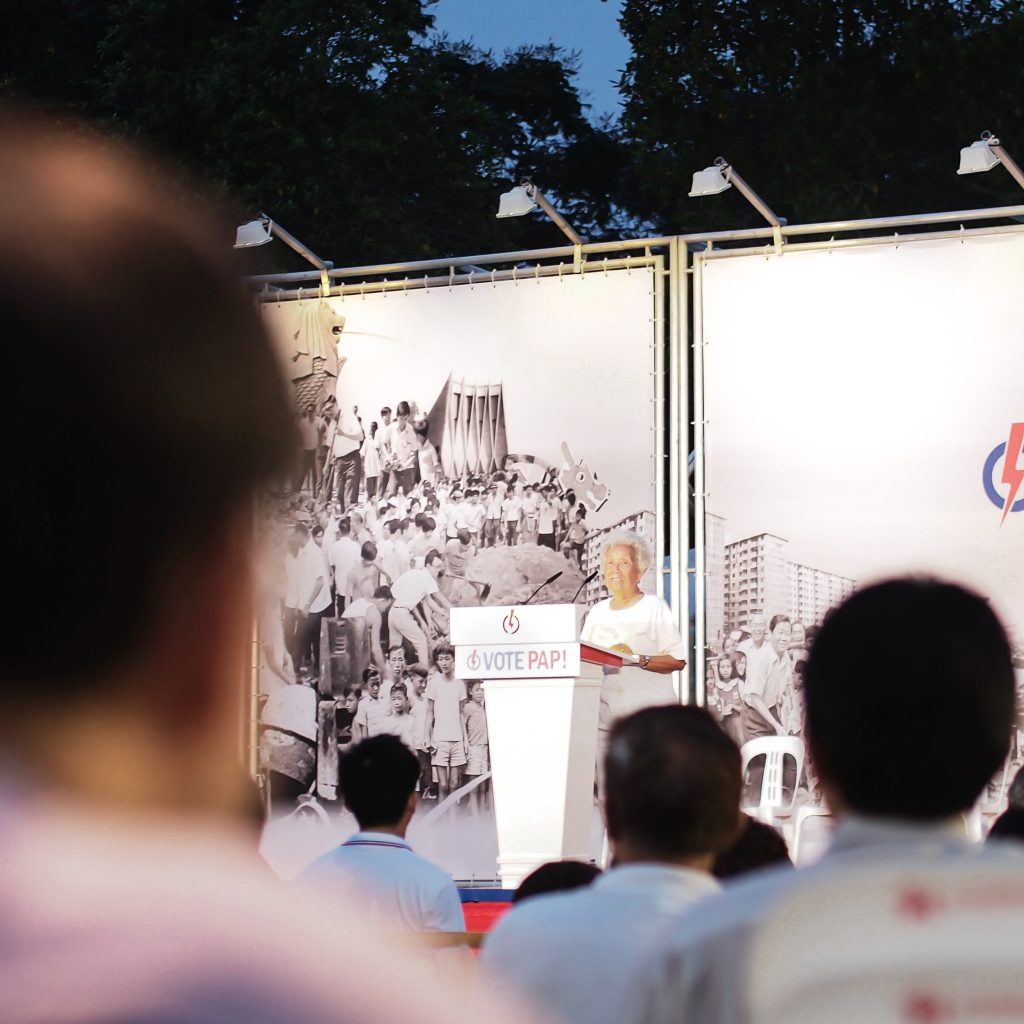Social Media and Elections in Singapore: Comparing 2011 and 2015
September 9, 2019

The 2015 Singaporean General Election (GE), held on 11 September, signified a political revitalisation of the ruling People’s Action Party (PAP) as it won 70% of the votes. This result came after the ‘watershed’ 2011 GE, where the PAP received the lowest number of votes (60%) since Singapore’s independence in 1963. Associate Professor Weiyu Zhang (NUS Department of Communications and New Media), in ‘Social Media and Elections in Singapore: Comparing 2011 and 2015’ (Chinese Journal of Communication, 2016), investigates the influence of social media during the 2011 and 2015 GEs.
A/P Zhang describes Singapore as an electoral authoritarian state, meaning that although there are regular, free, and fair elections, its governance style is authoritarian. Policies such as the Internal Security Act and the Newspaper and Printing Press Act assert control over information creation and dissemination. However, social and other new media are largely unregulated channels of information that have been used as political instruments. They function as alternative channels, mobilisation tools, forgers of opinion climate, and spaces for young voters to deliberate.
Opposition politicians had started to use social media to publicise themselves, disseminate pro-opposition information, and organise public support leading up to 2011. Furthermore, pro-opposition platforms such as The Online Citizen and various pro-opposition bloggers augmented the opposition’s strategies. At that point of time, having an online presence was not fully emulated by the ruling PAP, and the novelty of it swung many voters to the opposition.
However, since 2011, members of the PAP have become highly active on the internet. Almost all of them now have a Facebook page, using their online reach to provide citizens with status updates, interact with their supporters, and swiftly respond to critiques. Their online presence came to equal, if not surpass, that of the opposition by the 2015 GE. In addition, relatively new blogs leading up to 2015, such as Mothership and The Middle Ground, steered the online sphere in a more balanced direction.
A/P Zhang argues that more attention should be paid to the role of social media in altering power balances in the real world. She states that it is also crucial to recognise potential problems of this trend as access to technology is increasingly becoming a barrier to political participation and it is now easier to spread disinformation since the credibility and authenticity of online sources are hard to verify.
Read the article here.
